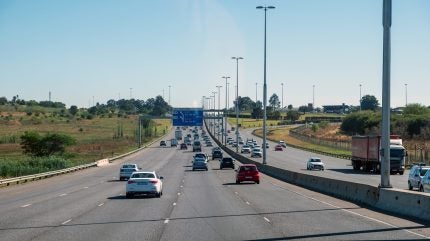
Chinese automotive companies Great Wall Motor Company (GWM) and Chery Automobile are reportedly gearing up to commence assembling vehicles in South Africa.
According to Bloomberg, vehicle sales in South Africa last month experienced a 24% increase compared to the previous year, totalling 54,700 units, with expectations of a return to pre-pandemic levels by 2025.

Discover B2B Marketing That Performs
Combine business intelligence and editorial excellence to reach engaged professionals across 36 leading media platforms.
The trend signals a resurgence of economic optimism in South Africa.
Chery’s South African operations CEO Tony Liu, said that the company is on course to nearly double its South African sales to 39,000 vehicles this year.
At an automotive event in Gqeberha, Liu disclosed that the firm anticipates deciding on setting up a completely knocked down plant within the next three to six months.
The rise in market share for importers of fully assembled vehicles from China and India has exerted pressure on South African manufacturers, prompting calls for increased import tariffs to incentivise local assembly and preserve jobs, according to Bloomberg.
South Africa’s automotive industry includes manufacturing facilities from global players such as Mercedes-Benz Group, BMW, Ford, Toyota, and Volkswagen.
Suzuki Motor has also seen its sales climb in recent years, the report added.
Chery, with its array of brands, secured fourth place in the country’s passenger car sales last month, outperforming Hyundai Motor, Ford, and Kia Corp.
GWM ranked sixth in the same category, with Toyota at the forefront.
Chery is contemplating acquiring an existing plant to streamline its assembly process, though Liu refrained from commenting on the costs or specific facilities under consideration.
Concurrently, GWM’s local chief operating officer Conrad Groenewald said that the company is engaging with local assembly companies to explore collaborative production of pick-up trucks.
Groenewald said: “It’s difficult to justify a new local-assembly plant as incentives are linked to onerous local-content requirements and volumes must reach 50,000 vehicles a year, presenting high barriers to entry for a “new kid on the block” such as GWM.”
According to Groenewald, GWM’s initial assessments indicate that local assembly could lead to a 4% improvement in margins over importing completely built-up vehicles. The company also aims to increase its local sales by 20% in the coming year.
Recently, Toyota announced plans to launch three electric vehicle models in South Africa in 2026, and Stellantis has expressed intentions to grow its presence in the South African market with the introduction of Leapmotor brand electric vehicles.






